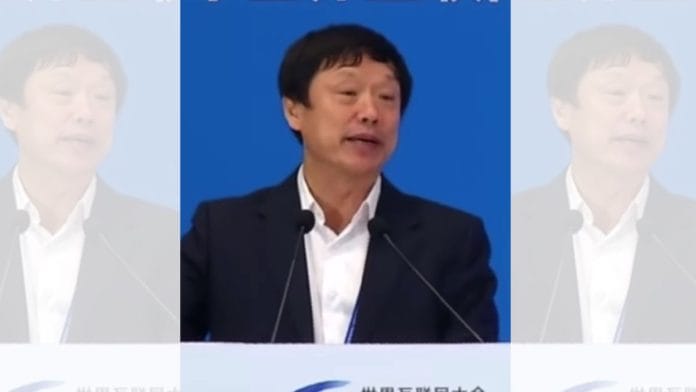New Delhi: Former Global Times editor-in-chief Hu Xijin—who was reportedly banned from social media for 30 days in July over a controversial comment on Chinese economic policy—has made a comeback on Chinese microblogging site Weibo after nearly 100 days of silence, Hong Kong-based research organisation China Media Project (CMP) has said.
A 1 November post on Weibo marked his comeback. In the post, Hu wrote about what he had been up to the past three months—road trips and visiting “red tourism” sites—and advocated the “special spirit” of China. His comeback was welcomed by users—he has over 566,000 followers on X and 25 million on Weibo—with comments like “Old Hu is back”, the CMP said. Another user wrote, “You are objective, fair, and positive.”
Hu is known to be an advocate of the Communist Party of China (CPC) and is known for having “constructed a whole style of authoritarian, nationalistic rhetoric”, a 2021 article in The Guardian quoted Xiao Qiang, an expert in Chinese media at Berkeley’s School of Information, as saying. He is said to have close contacts with the top Chinese leadership.
But at the same time, he is known for his outspokenness and has previously come under scrutiny from the Chinese political dispensation. His retirement from the state-run Global Times in late 2021 was also controversial. Calling him a “loose cannon”, CMP had cited sources who attributed his removal to “unhappiness over his visibly international remarks”.
In July, his comments in a now-deleted blog post implying a push for a “private economy” in China—following the release of the Third Plenum Communiqué after the twice-a-decade conclave presided by President Xi Jinping—had triggered a backlash from Chinese state media.
The Third Plenum is an important event that has generally set the economic policy of the country for the foreseeable future; Deng Xiaoping’s famed economic reforms and opening up of the Chinese economy were announced at such an event in 1978.
This year, the closed-door meeting chaired by Xi Jinping this year set the stage for China’s economic policy till 2029.
Following the conclave, in a 22 July WeChat blog, Hu implied that China was looking to “achieve true equality between a private and state-owned economy”. He left out a phrase that was key to the outcome of the conclave that said the “state sector is the mainstay of the Chinese economy”.
His comments on capitalism immediately led to a social media furore, where other commentators stepped in to rebut his claims, before the censors stepped in and the post was taken down, according to Foreign Policy.
“The new Chinese Communist Party Disciplinary Regulations explicitly forbids people like Hu from jumping the gun like he did,” Wen-Ti Sung, a political scientist at the Australian National University, told Voice of America.
Following the incident, Hu had been quiet on the web—until now. After stepping down from the Global Times, he had continued to write a column (‘Hu Says’) for the paper. The last one so far was published on 24 July, but its continued presence on the website had kept users intrigued about his possible comeback.
‘Tacit understanding’ with officials
Hu is known to be close to top officials in the Communist Party.
In an interview with Bloomberg News in Beijing in 2019, Hu had said, “I’m not sure if Chinese officials are deliberately passing on information to me. The officials and I have a tacit understanding.”
Reuters reported in 2019: “Hu acknowledges that he occupies an ambiguous space in the Communist Party’s efforts to communicate its plans to the world.”
However, he is known to make inflammatory statements on international and domestic issues. He courted controversy for his comments on accusations against a senior retired member of the CCP by tennis star Peng Shuai, and on the UK’s aircraft carrier, HMS Queen Elizabeth, entering the South China Sea in July 2021.
His last post on X, on 26 July, was about the opening ceremony of the Paris Olympics.
The Paris Olympics 2024 Opening Ceremony is about to start. China’s AI is bringing the Olympics into the digital era and helping transform Olympic broadcasts! pic.twitter.com/54uP0Ko5Wj
— Hu Xijin 胡锡进 (@HuXijin_GT) July 26, 2024
(Edited by Sugita Katyal)
Also read: Hu Xijin, former editor of China’s Global Times, ‘banned’ from social media for 30 days






